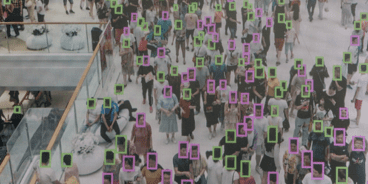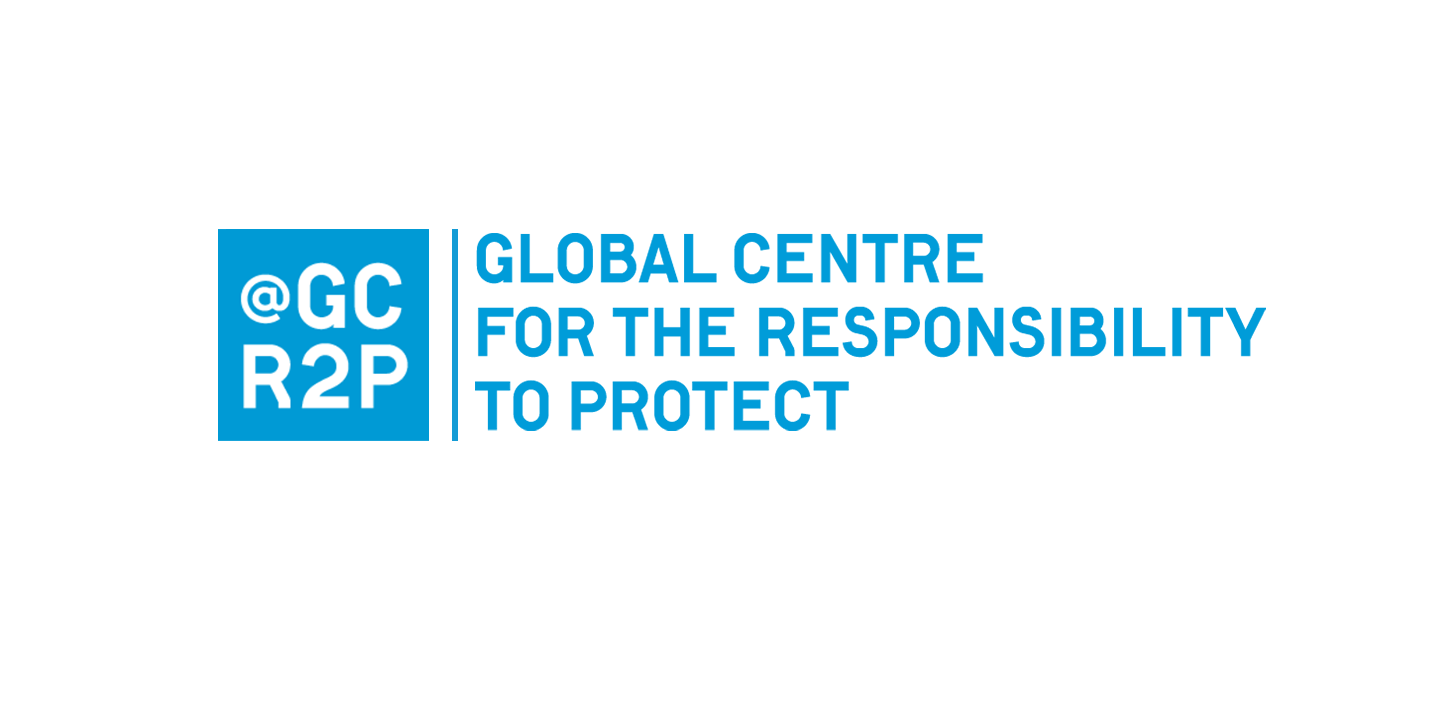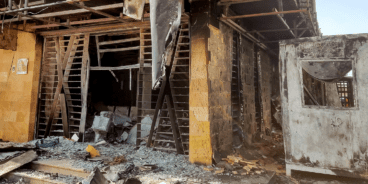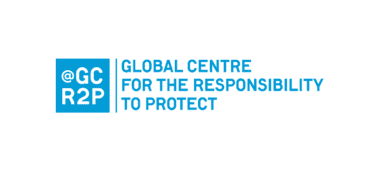

Resisting Marginalization, Exclusion, Hate Speech and Hate Crimes and the Prevention of Mass Atrocities
On 26 May 2020 Deputy Executive Director Savita Pawnday spoke during the Organization for Security and Co-operation in Europe’s (OSCE) Supplementary Human Dimension Meeting on Addressing All Forms of Intolerance and Discrimination. Ms. Pawnday delivered remarks during Session III: “From Early Warning to Early Action: Prevention of Discrimination from Escalation into Tensions or Conflict.”
Good Afternoon, colleagues. I would like to begin by thanking the organizers and the co-hosts for inviting me to be part of this important discussion.
Before I get into the substance of my presentation, let me briefly introduce the Global Centre and our work in relation to today’s conference. The Global Centre focuses on the implementation of the Responsibility to Protect, a global norm that was unanimously adopted by heads of states and governments at the 2005 UN World Summit aimed at preventing and halting genocide, war crimes, crimes against humanity and ethnic cleansing – what we refer to as mass atrocities Within this context, the Global Centre examines situations around the world to determine the risks and likelihood of mass atrocity crimes and provides recommendations on how to build societal resilience to prevent their occurrence.
Since no country is immune to mass atrocity crimes, we examine situations of armed conflict as well as those where inter-group tensions or patterns of discrimination may exist in the absence of conflict. In many of these situations, marginalization, exclusion, hate speech and hate crimes are factors that are early indicators of atrocity risks. In fact, many of the world’s darkest chapters were preceded by discriminatory public discourse and demonization of certain groups within society, spreading fear among the population to justify atrocities. They were defining features of the Holocaust, and the genocides at Srebrenica and in Rwanda nearly 25 years ago.
These early warning signs have further been identified in a number of current and ongoing atrocity situations. For example, in Myanmar, discriminatory policies targeting the Rohingya population were in place for decades. This discrimination did more than just marginalize the Rohingya from political participation, it stigmatized the group as being “outsiders” or “foreigners”. Over time this established an environment that was permissive of hate speech and violence against the Rohingya and eventually in 2017 led to the so-called “clearance operations” that have been determined to be part of a genocide committed by the government of Myanmar against the Rohingya people.
In divided and fragile societies already suffering from identity-based conflict, the novel coronavirus, COVID-19, has increased various risk factors that could lead to mass atrocity crimes. Xenophobic violence, stereotyping, stigmatization, discrimination and the use of derogatory, misogynistic, racist, xenophobic, Islamophobic or antisemitic language are on the rise since the outbreak of the virus. On 8 May, United Nations Secretary-General Antonio Guterres stated that “the pandemic continues to unleash a tsunami of hate and xenophobia, scapegoating and scare-mongering”, calling upon governments to stop the spread of “the virus of hate.”
Since the outbreak of the pandemic, individuals perceived as ethnically Chinese or Asian, or belonging to certain ethnic or religious minorities, migrants, and foreigners have been vilified for spreading the virus. In some instances, government leaders and officials across the globe have directly or indirectly encouraged hate crimes, racism or xenophobia. According to the UN Guidance Note on Addressing and Countering COVID-19 related Hate Speech, instances of hate speech attributing the virus to Jews, Muslims, Christians, or minority groups has resulted in hate crimes or discrimination.
For example, across German cities in mid-May, thousands of people protested the government’s COVID-19 measures. Yet, some people used the protests as an opportunity to display anti-Semitism, or open or thinly veiled support for neo-Nazi ideology. During 2019 there were approximately 2,000 attacks on Jewish people or Jewish institutions in Germany, a 13 percent increase from 2018. As UN Special Adviser on the Prevention of Genocide Mr. Adama Dieng noted, “the Holocaust did not start in the gas chambers, it started long before with hate speech.”
Some governments and politicians are already taking advantage of the pandemic to bolster their personal power or weaken human rights protections. We are increasingly seeing heads of governments taking measures to rule by decree and curtailing legislative oversight.
Discriminatory public discourse against communities based on ethnic, religious or national reasons has become particularly visible in Europe in the last few years, where the so-called refugee crisis has increased racism and xenophobia. This demonstrates that no society is immune against tensions and discrimination of certain groups. We have witnessed the significant rise of support for right wing parties and European politicians emboldened to engage in openly racist hate speeches and anti-migrant statements.
Extreme right parties and candidates have defined the national identity in exclusionary ethnic and religious terms and give priority to “their own people.” During 2017, the rhetoric propagated by right wing parties in France claimed that mosques, prayers in the streets and the veil worn by Muslim women were threats to its culture and values. This kind of rhetoric is well-received among the supporters of populist narratives, and trickles down into society and becomes normalized, nurturing sentiments of intolerance and xenophobia.
It is not easy to determine when political rhetoric stops being free, “protected speech” and turns into incitement and a threat to public safety.
What all of these examples have in common is that societies in contexts of perceived instability or fear are particularly receptive to discriminatory public discourse and the marginalization of groups. This may be caused by ongoing conflict, poverty and inequality, lack of good governance or sudden changes to societal order, such as the mass influx of migrants or a global pandemic.
In such uncertain contexts, the desire for group identification – and hence protection – becomes stronger. Perpetrating violence against individuals or groups which are perceived as “threats” may not only normalize and justify such acts; it can encourage perpetrators to demonstrate their willingness and ability to “defend” their community by engaging in greater violence.
Colleagues, atrocity prevention is a continuous process that requires constant engagement and dialogue with all groups of society. In states which have experienced tensions and violence along ethnic and religious lines, reconciliation and societal change can only be achieved through judicial and social accountability mechanisms that address the root causes of inter-communal grievances and violence, such as prosecution of perpetrators or establishing truth and reconciliation mechanisms. In other contexts, such as growing nationalist sentiments across the European continent, a strong civil society and a pluralistic media are vital to counter right wing and xenophobic rhetoric.
On a national level, these factors must be addressed through holistic policies and processes aimed at countering discrimination and marginalization. This includes the strengthening of legislative and institutional frameworks to guarantee principles of non-discrimination, ensuring the presence of various communities in political and public offices, and investigating all cases of discriminatory behavior or dangerous public discourse, even when practiced by popular politicians and leaders
At the international level, Universal Periodic Review is particularly well suited to identify early warning signs, to encourage states to strengthen their national capacities through technical assistance and capacity building.
While discrimination, marginalization and inflammatory rhetoric are processes that are built up and are often institutionalized over a longer period of time, the escalation into mass atrocities can happen swiftly. It is our individual and shared responsibility to therefore recognize these patterns as early warning signs and react swiftly and decisively to protect populations from atrocities.
Related Content


